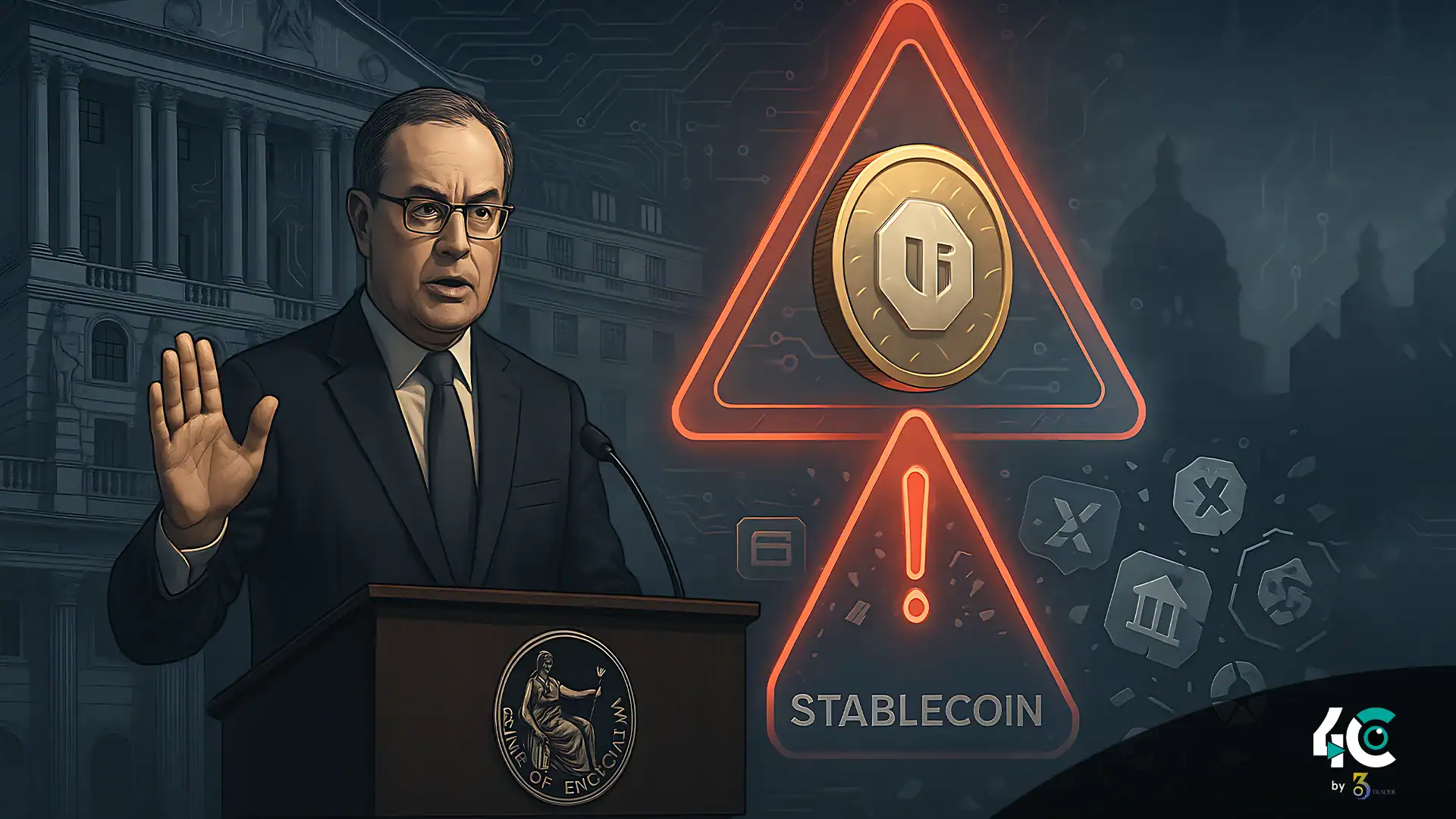Bailey Rejects Private Stablecoins
Central banker Andrew Bailey ruled out a “private” stablecoin, warned it could jeopardize financial stability, and said a bank or commercial project would not work either. Bailey’s view was shared by Bank for International Settlements (BIS) head Agustín Carstens.
In an interview with The Sunday Times, Bailey said:
“If people start using privately issued stablecoins, that will lead to disintermediation; money will simply leave the banking system. That will erode banks’ ability to lend and increase systemic risk during a market shock.”
Tokenized Deposits as a Safer Option
Bailey does not favor stablecoins but believes in tokenized commercial bank deposits, which are a digital alternative that preserves the core structure of the financial system. He pointed out that this would achieve the advantages of digital currency without compromising regulation or monetary control.
Bailey has made these comments after he took over as the new chairman of the Financial Stability Board (FSB), the global body that surveys risks to the financial system. His comments also reflect a widening gulf in the approaches of the UK and US toward the rise of digital assets.
A Transatlantic Divide in Digital Currency Strategy
The United States is keen on stablecoins, which were among the key agenda items at last month’s G20 meeting. U.S. officials are now launching multiple initiatives toward stablecoin development, including a Trump-backed USD1 token with a market cap of $2.2 billion. On the other hand, the United Kingdom is proceeding cautiously on stablecoin regulation and adoption.
American officials argue that stablecoins can help boost the U.S. dollar’s global dominance by expanding access to U.S. financial instruments via digital platforms.
In contrast, European leaders like Bailey fear that dollar-backed stablecoins could replace the euro or British pound in cross-border transactions, thereby undermining national currencies. Critics say that unregulated mass use of stablecoins may also encourage money laundering and increase systemic risk.
No Support for the Digital Pound
Bailey also said that the focus should instead be on digital innovation within the existing banking system—not on creating a UK central bank digital currency (CBDC), commonly referred to as the digital pound.
“It is smarter to digitize deposits rather than float a state-backed digital currency in response to private sector coins,” he said.
His cautious stance reflects broader European fears that rapid adoption of stablecoins and CBDCs could disrupt traditional banking and shift monetary control away from policymakers and toward private entities.
Conclusion
Bank of England’s Andrew Bailey warned that private stablecoins are a threat, showing that financial stability takes priority over innovation. Bailey believes that using regulated tokenized deposits can be beneficial. He is against private stablecoins and the idea of a digital pound. His approach promotes long-term trust and safety in the evolving financial system.



























